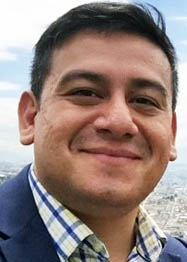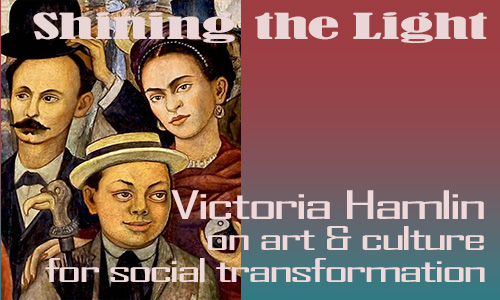|
|
|
|
The weekly newsletter of the México Solidarity Project |
|
|
|
Online at mexicosolidarityproject.org |
|
January 25, 2023/ This week's issue/ Meizhu Lui, for the editorial team |
|
|
Photo: Patricia Stuart |
|
Behind the Curtain: Some Deadly Truths |
|
In the United States, México, and around the world, governments typically generate “fake news” to gain or maintain political power. That “news” can smell like a rat to us, but we don’t know how to find the truth. We suspect foul play on the part of government actors, but we don’t know how to bring them to justice.
In a democracy, we the people are supposed to exercise oversight over our elected leaders. A most difficult task when militaries, police forces, and investigative bodies all answer to top government officials.
So who can find out what’s really going on behind the curtains? We essentially rely on investigative reporters, paid by independent news sources, to help our democracies function as they should. But these journalists have become a dying breed, and nowhere more so than in México, where journalists are literally dying. Searching for the truth can become dangerous when reporters get close to revealing the shadowy figures of criminal perpetrators as powerful political leaders.
Journalist José Luis Granados Céja, in our interview this week, examines why México has become one of the most dangerous places to seek to uncover inconvenient truths. He understands, so much more directly than most of us, that protecting those bringing to light what’s hidden behind the curtain protects democracy itself. |
|
|
|
Don’t miss an issue. Subscribe to the weekly México Solidarity Bulletin! |
|
|
|
|
Risking Your Life for the News: Journalists in México |
|
The news stories and analyses of José Luis Granados Ceja, a freelance writer and photojournalist based in México City, focus on contemporary political issues, especially those that involve grassroots efforts to affect social change in México and the rest of Latin America. His Anti-Imperialista column appears monthly in our México Solidarity Bulletin Reflections section.
In México, the PRI political party maintained power for 70 years by turning social sectors into its appendages. The PRI, for instance, appointed the heads of labor unions. How about the media?
In any country, the media help establish the hegemony of the political elite. But in México the media played an outsized role and made no secret of it. |
|
|
In the 1980s, for instance, Emilio Azcárraga Milmo, the head of Televisa, even openly stated, “I am a soldier of the PRI!” For a century, México amounted to what some analysts called “a perfect dictatorship.” It had one-party rule and a compliant media that covered up human rights abuses.
How did the government keep the media on a leash? Like labor, the media were bought off. Government funds kept media outlets and journalists afloat. Asked about the deaths of journalists, the PRI’s current president, Alito Moreno, said cynically, “We don’t have to murder journalists. We kill them with hunger.”
Does independent journalism now have more room under AMLO?
We’ve seen an explosion of citizen journalism, but most of the credit for that goes to the rise of social media, especially YouTube. Newscaster Vicente Serrano’s Sin Censura, a viewer-funded YouTube site, offers one good example, the progressive website-based SinEmbargo another. With social media, independent journalists can operate inexpensively. Hunger can’t kill their independent voices!
México today also has public channels that don’t operate as propaganda machines, much like National Public Radio — NPR — in the US, and many universities have their own channels as well.
Journalism continues to be one of the most dangerous professions in México. The murders have not abated. Why?
Under previous presidents, many of the journalists murdered were working as investigative reporters. They were targeted because they exposed corruption — politicians, for example working hand-in-glove with the drug cartels.
The situation has not improved. In terms of security, México is facing a crisis of impunity. Powerful people feel they can get away with crime because the local and state police are still sitting in the pockets of organized crime, and those who use cartels to get rid of those who might reveal their corruption often never face prosecution.
Journalists have demanded more protection. A program does exist that assigns guards to protect individual journalists, but it doesn’t work. What kind of expertise do those who take these security jobs need to have? Would greater militarization be the answer? We have no solutions yet.
What about the state media, Notimex? A long and bitter strike has been going on there. Why hasn’t this been resolved?
A tragic case. The well-respected progressive journalist AMLO appointed to run Notimex tried too hard to control the service’s messaging and treated the employees badly. This could have been resolved easily. AMLO needed to have insisted right away that the workers’ rights must be respected.
You’ve written that widely read journalists hostile to López Obrador like Denise Dresser shape how the majority of people in the US see AMLO.
Dresser poses as a progressive who allegedly voted for AMLO. But whatever AMLO does, she gives it a negative spin. Real progressives see her as what she is: an apologist for the right who wants a return to the pre-Morena days. At one progressive demonstration where Dresser turned up, people told her unceremoniously she wasn’t welcome. The mainstream media then leapt to her defense. Mexicans know where the loyalty of those people lies.
But people in the United States, unfortunately, don’t — including many US progressives. They read the columns by Dresser and other mainstream journalists and accept their analyses that regularly reinforce the notion that the “good old day were better,” that AMLO has been more corrupt and authoritarian than the PRI/PAN governments.
Those old days were better — for US imperial interests, with PRI/PAN acting as a willing partner in opening the door to US economic predation at the expense of México’s people.
You’re a freelance journalist yourself. What do you want to bring to public attention?
First, I’m not a Morena party member, but I support the party’s agenda of political, economic and social transformation. I report on what’s happening in Latin America from a left point of view. One example: The English-language media don’t carry much news about Latin America’s new “Pink Tide,” the political turn to the left that has México at the tip of the wave. I want to show that this wave reflects struggles for national liberation, struggles to resist imperialism and defend national sovereignty.
Domestically, I explore the contradictions within México, but neither from an ultra-left perspective — that makes any problem the fault of the US — nor from an oppositional stance that seeks to get rid of AMLO and Morena.
To better understand current media dynamics, let’s take the way environmental issues get covered. Many articles make AMLO seem like a dinosaur who wants to keep emitting carbon and drilling for oil, the environment be damned. That’s nonsense. The real issue remains sovereignty: AMLO wants to strengthen the state oil and energy sectors.
Under Peña Nieto, AMLO’s predecessor, we saw huge demonstrations about rising gas prices. Today, gas — an energy source no nation can eliminate overnight — has become more affordable and accessible.
The clean energy companies some environmentalists tout as México’s salvation turn out to be US-owned. By portraying AMLO as anti-environment, the champions of these companies open the door to private foreign capital. AMLO wants to be able to control foreign investment so money doesn’t flow out of México, but stays at home to benefit the people.
This issue has confronted México for over a century: how to get out from under US thumb.
So how important is better understanding what’s going on in México?
Ruling classes around the world are finding it increasingly difficult to defend what’s happening in their countries. Ordinary people are looking for answers and alternatives. They should look to México and Latin America! And it’s our job, as independent journalists, to help you look behind the curtain. |
|
|
Go-o-o-o-al! A Win for All the World’s Women |
|
Karen Janett Díaz Medina, like all successful athletes, combines love for her sport — in her case, soccer — with a fierce commitment to do the hard work necessary to excel. But she has ended up excelling in a sphere of her sport she never expected. |
|
Born in Aguascalientes, Mexico, Díaz was on her way to work at Agroindustrial Engineering when, at a local soccer game, “the designated referee did not show up,” as she recalled in a 2020 interview. “The league administrator asked me if I wanted to referee the game, and I said yes. I liked it, and I enjoyed the experience.” |
|
|
From then on, Díaz found herself assigned to more and more games. She even paid for college with the money she earned.
Díaz sees refereeing as “a passion that challenges you every day both physically and mentally.” She considers all the women in the world “women of challenges.” Each and every day, these women have “a match to officiate.” |
|
But never a match like the Germany-Costa Rica World Cup contest last month when three women referees, including Karen Diaz, walked out onto the field. Women had officiated in top-tier men’s soccer before, but never together at this breath-taking level. This moment had a special significance.
When I worked in construction, other women and I used to talk about strength in numbers. In construction, those numbers have hardly changed. Resistance to our presence has been fierce.
But we can celebrate, with Karen Diaz, a real sea change. Having one person represent a minority can have a great impact. But having a group, a crowd, a posse do that representing amounts to something entirely different. Three will always be so much more than three times one. In World Cup soccer, three represents a referee team. |
|
|
Referee Karen Díaz runs alongside the action at a Cruz Azul versus León game this past October. Photo: Edgar Negrete Lira/Cuartoscuro.com |
|
Three is women working together, the achievement of excellence many times over. Not just a one-off, not just a singular over-achiever, but a true display of the potential of our entire gender: all women, all girls. Three women from all over the planet, striding out onto the field in one of the world’s biggest athletic competitions.
An image never to be forgotten. |
|
|
|
Left, referee Karen Diaz Medina of México before a Group B match at the 2022 FIFA World Cup in Qatar. Photo: Getty. Above, at the Germany-Costa Rica match, a World Cup first: three women refereeing the same contest. Photo: Reuters. |
|
Activist Vicky Hamlin is a retired tradeswoman, |
|
|
|
Recent news reports and commentaries, from progressive and mainstream media,
Luis Feliz Leon, Mexican Auto Parts Plant Is Battleground for Independent Union’s First Contract Fight, Labor Notes. National labor law reforms and labor provisions of the USMCA have created an opening for Mexican workers to form genuine unions. But workers still have to force bargaining on intransigent employers.
Néstor Jiménez y Alonso Urrutia, AMLO: se unen conservadores para financiar golpes de Estado, La Jornada. Los conservadores en el mundo han generado redes de financiamiento dedicadas a generar propaganda en contra de gobiernos que luchan por la justicia y la liberación de los pueblos.
James McCarten, To advance 'North American Idea,' fortify bond between Canada, Mexico, experts say, CTV News. Mexican President López Obrador surprised the Canadian delegation to the North American summit earlier this month by echoing the sentiment that all three countries would be stronger if they were better able to function as a single unit.
Dalila Sarabia, “Ya no se puede recuperar el tiempo pero que sea tiempo de calidad”: la historia de Irma, liberada por amnistía tras 18 años presa, Animal Politic. El 22 de febrero de 2005, después de ser golpeada por su entonces pareja, Irma perdió al bebé que esperaba y las autoridades la condenaron a 40 años de prisión por el homicidio de su bebé.
Camilo Montoya-Galvez, Migrant arrivals soared to record levels in December, before border crackdown was announced, CBS News. The US has announced that México has agreed to accept 30,000 returns per month of migrants from Cuba, Haiti, Nicaragua, and Venezuela who have crossed into the US illegally.
Rodrigo Ek, Caso Ayotzinapa: Alejandro Tenescalco, supervisor de la policía de Iguala, es entregado a México; intentó cruzar a Estados Unidos, sdpnoticias. El expolicía Alejandro Tenescalco sería una de las piezas fundamentales para avanzar en la resolución del caso de los 43 normalistas de Ayotzinapa desaparecidos.
Isabel Keane, Mexican President AMLO says he’ll ‘review’ drug kingpin El Chapo’s request to return home, New York Post. “El Chapo” claims he faces “cruel and unfair” conditions at his high-security US prison. Notes AMLO: “You always have to keep the door open when it comes to human rights.”
CDMX destinará 140 millones de pesos para 770 cooperativas, La Coperacha. El secretario del Trabajo y Fomento al Empleo subrayó que como parte de un nuevo modelo para impulsar la economía social este año se beneficiarán a 8 mil 380 personas emprendedoras.
Biden summit with AMLO signals progress in fentanyl war, Dallas Morning News. High-level discussions involve plans for México to tackle the fentanyl smuggled across the border and for the U.S. to bring down the number of guns trafficked into México.
Rafael López Méndez, Percepción de inseguridad en México sigue a la baja, reporta Inegi, Milenio. La sensación de inseguridad en las mujeres es mayor que el de los hombres, pues 70 de cada 100 mujeres se sintió poco protegida en su ciudad de residencia; mientras que en el caso de los hombres el porcentaje fue de 57 por ciento.
Rodrigo Ek, Caso Ayotzinapa: Alejandro Tenescalco, supervisor de la policía de Iguala, es entregado a México; intentó cruzar a Estados Unidos, sdpnoticias. El expolicía Alejandro Tenescalco sería una de las piezas fundamentales para avanzar en la resolución del caso de los 43 normalistas de Ayotzinapa desaparecidos.
CDMX destinará 140 millones de pesos para 770 cooperativas, La Coperacha. El secretario del Trabajo y Fomento al Empleo subrayó que como parte de un nuevo modelo para impulsar la economía social este año se beneficiarán a 8 mil 380 personas emprendedoras.
Biden summit with AMLO signals progress in fentanyl war, Dallas Morning News. High-level discussions involve plans for México to tackle the fentanyl smuggled across the border and for the U.S. to bring down the number of guns trafficked into México.
Rafael López Méndez, Percepción de inseguridad en México sigue a la baja, reporta Inegi, Milenio. La sensación de inseguridad en las mujeres es mayor que el de los hombres, pues 70 de cada 100 mujeres se sintió poco protegida en su ciudad de residencia; mientras que en el caso de los hombres el porcentaje fue de 57 por ciento. |
|
|
The Mexico Solidarity Project brings together activists from various socialist and left organizations and individuals committed to worker and global justice who see the 2018 election of Andrés Manuel López Obrador as president of México as a watershed moment. AMLO and his progressive Morena party aim to end generations of corruption, impoverishment, and subservience to US interests. Our Project supports not just Morena, but all Mexicans struggling for basic rights, and opposes US efforts to undermine organizing and México’s national sovereignty.
Editorial committee: Meizhu Lui, Bruce Hobson, Bill Gallegos, Sam Pizzigati, Courtney Childs, Victoria Hamlin, Agatha Hinman, Steven Hollis, Daniel McCool, Betty Forrester. To give feedback or get involved yourself, please email us! |
|
|
|
Web page and application support for the México Solidarity Project from NOVA Web Development, a democratically run, worker-owned and operated cooperative focused on developing free software tools for progressive organizations. |










